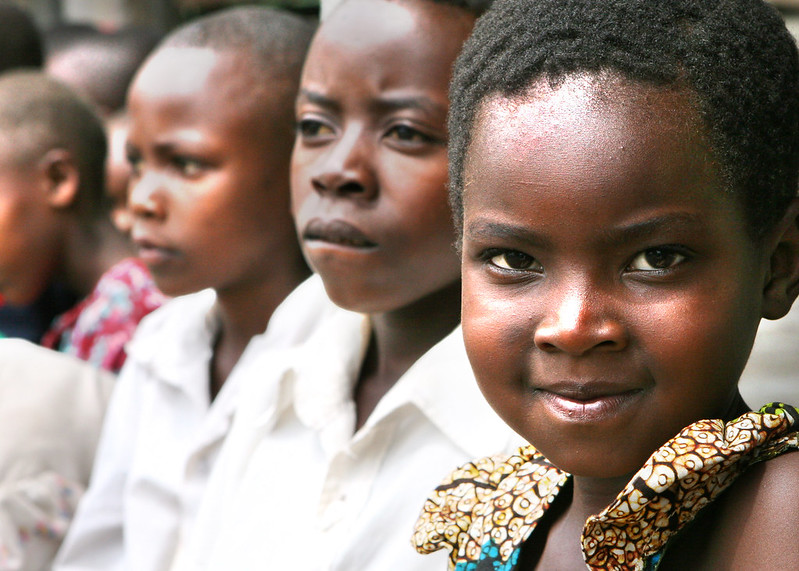Child Marriage in Tanzania
 Tanzania’s Marriage Act of 1971 establishes the minimum marriage age for girls at 15 with parental consent and 18 for boys. The law also allows 14-year-old children to marry under special circumstances if a court approves. Despite this, 29% of Tanzanian girls marry before their 18th birthday and 5% marry before age 15, which could breach the Marriage Act unless courts have specifically authorized these marriages. Similarly, 4% of boys marry before age 18. Although these marriages are not illegal for boys, they still impact young males. Child marriage rates across Tanzania reveal significant regional variations, soaring to 59% in Shinyanga, 58% in Tabora, 55% in Mara and 51% in Dodoma, while rates are much lower in Iringa at 8% and Dar es Salaam at 19%.
Tanzania’s Marriage Act of 1971 establishes the minimum marriage age for girls at 15 with parental consent and 18 for boys. The law also allows 14-year-old children to marry under special circumstances if a court approves. Despite this, 29% of Tanzanian girls marry before their 18th birthday and 5% marry before age 15, which could breach the Marriage Act unless courts have specifically authorized these marriages. Similarly, 4% of boys marry before age 18. Although these marriages are not illegal for boys, they still impact young males. Child marriage rates across Tanzania reveal significant regional variations, soaring to 59% in Shinyanga, 58% in Tabora, 55% in Mara and 51% in Dodoma, while rates are much lower in Iringa at 8% and Dar es Salaam at 19%.
The Current Child Marriage Situation
Child marriage remains prevalent in Tanzania, driven by outdated beliefs of male superiority and influenced heavily by poverty. The concept of “Mahari,” or bride price, involves a husband offering money, cattle or clothing to a bride’s family, making marriage a financially appealing option for girls with few other income opportunities. In addition to affecting girls, child marriage also impacts boys under 18.
Family honor plays a significant role, with premarital sex viewed as a severe taboo that can lower a girl’s dowry and damage her family’s reputation. Teenage pregnancy rates are high; a 2016 study revealed that one in four girls aged 15 to 19 had begun childbearing. Tanzanian society strongly disapproves of pregnancy outside marriage, often leading parents to marry off pregnant daughters. Schools routinely test for pregnancy and pregnant girls face bans from re-entering the educational system.
Country-specific practices and rituals also contribute to child marriage in Tanzania. “Nyumba ntobu,” one of such practices, involves an older, wealthier woman paying a bride price for a young girl to become her wife. A man is then selected to impregnate the girl and any children born from this union are raised as the older woman’s child. This is just one of many factors that contribute to the prevalence of child marriage, significantly affecting young girls across Tanzania.
National Initiatives to Combat Child Marriage
Between 2017 and 2022, the government implemented numerous action plans to support girls facing the threat of child marriage. As of 2022, the National Plan of Action to End Violence Against Women and Children worked to reduce child marriages to 10% and cut violence against women and children by 50%. Following the implementation of this plan, authorities established 16,343 Women and Children Protection Committees across all levels, from villages to the national level.
In 2017, the Ministry of Health, Community Development, Gender, Elderly and Children conducted a national survey on the drivers and consequences of child marriage. Additionally, the ministry developed the National Female Genital Mutilation/Cutting Strategy and Implementation Plan for 2019-2022 and collaborated on the Cross-Border Anti-Female Genital Mutilation/Cutting Plan of Action for East African countries to prevent female genital mutilation/cutting practices across borders during the same period.
Firelight Foundation
Firelight is committed to ending child marriage in Shinyanga, a northern city in Tanzania, believing that success in this challenging region could inspire broader change throughout the country. To combat child marriage, Firelight supports 12 grantee partners who implement a range of strategies, including economic strengthening through income-generating activities, livestock pass-on programs and psychosocial support for children rescued from child marriages. It also offers vocational and educational support for at-risk children, skillful parenting programs, community awareness campaigns via radio or drama, law enforcement interventions, training for local child protection committees, the establishment of child rights clubs in schools and training for teachers on child rights.
Looking Ahead
Tanzania continues to struggle with high rates of child marriage, particularly in regions like Shinyanga and Tabora. National efforts, such as the National Plan of Action to End Violence Against Women and Children, aim to reduce these rates, but cultural and economic factors remain significant obstacles. Organizations like the Firelight Foundation are actively working on the ground, supporting local initiatives that promote economic independence and provide educational opportunities for at-risk children. Ongoing efforts are essential to address the root causes of child marriage and ensure a safer future for Tanzania’s youth.
– Sadie Virgin
Sadie is based in Newport, South Wales, UK and focuses on Good News for The Borgen Project.
Photo: Flickr
